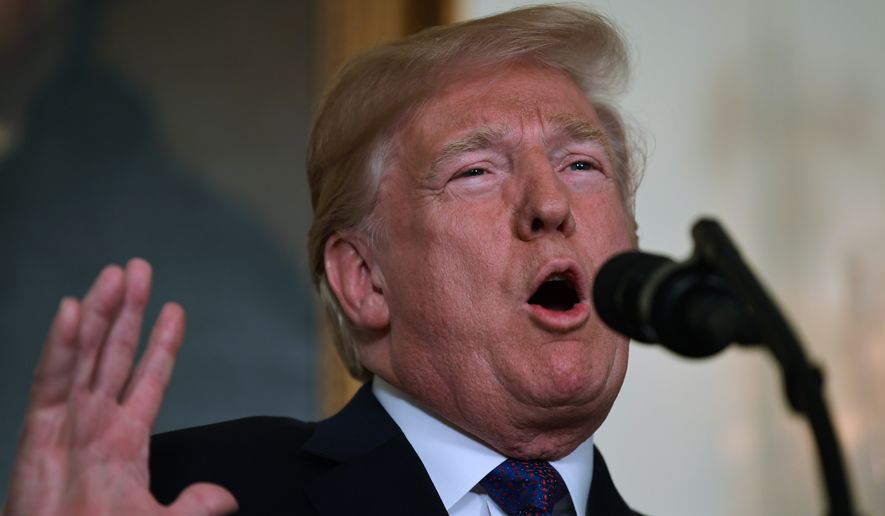President Trump has enforced his predecessor’s “red line” about chemical-weapons use almost six years after it was drawn, but the parameters of the president’s Syria policy are far from clear.
White House officials have pointed to the April 7 attack in Douma as a catalyst for the missile attack launched overnight Friday into Saturday by a U.S.-led coalition that also included Britain and France.
In an assessment released concurrently with the missile strike, the White House identified reports of dozens of chemical attacks believed to be carried out by the Assad regime over the last year. But this attack was accompanied by video evidence.
“I think that one of the things that Donald Trump has made clear is that, when there’s video of kids suffering, he responds to that,” Jonah Goldberg, a senior editor of National Review, said on “Fox News Sunday.” “That’s his red line. I’m not sure that is a super-coherent strategy going forward.”
At the United Nations on Friday, U.S. Ambassador Nikki Haley upped the estimate of chemical attacks believed to be carried out by the Assad regime over the course of the years-long conflict to 50.
On Saturday, following the strike, Ms. Haley said the U.S. is “locked and loaded” should the Syrian regime use “this poisonous gas again.”
“When our president draws a red line, our president enforces the red line,” she said.
When asked Sunday whether future chemical weapons attacks will be met with similar consequences, Ms. Haley declined to say.
“I don’t think there’s any way I can answer that,” Ms. Haley said on “Fox News Sunday.” “I mean, we don’t know what he’s going to do, the level he’s going to do or anything else. I can tell you the president is watching, and I think the national-security team is ready. So, basically, we will watch his actions.”
She said the Douma attack was “egregious,” “barbaric” and “disgusting.” She also said Friday’s missile strike was in response to a “cumulative wave of constant use of chemical weapons” used by the Syrian regime.
The U.S. “can’t allow even the smallest use of chemical weapons,” she added.
Ms. Haley summed up the president’s prerogatives as threefold: prevent the use of chemical weapons, defeat the Islamic State, also known as ISIS or Daesh, and preempt Iranian aggression in the region.
The administration’s vagueness may be due to Mr. Trump’s theory, elucidated during the presidential race, that unpredictability in foreign policy is a virtue.
“You don’t want to let people know what you’re going to do with respect to certain things that happen,” the president said in a 2015 interview with radio host Hugh Hewitt. “You don’t want the other side to know. I don’t want to give you an answer to that.”
Mr. Trump has found some unlikely allies in the wake of the missile strike.
Former CIA director John Brennan, a prominent critic of the president, said he agreed with the decision to bomb Syria.
“I think this administration’s actions against Syria were appropriate,” Mr. Brennan said Sunday on NBC’s “Meet the Press.” “And I tend to be a critic of this administration. But I think the way they handled this was exactly right. It was proportional and it was necessary in order to send that signal.”
He said the situation in Syria is still a “very, very complicated one.” He said America should “continue to put pressure” on the regime of President Bashar Assad, without getting involved in “another full-scale war in the Middle East.”
Sen. Angus King, a Maine independent, said the strike is “arguably within our national interest and justified.”
“Going in to take out chemical weapons capacity, which was what this strike was all about, is arguably within our national interest and justified,” Mr. King said on CNN’s “State of the Union.” “What this strike was not, and I think it’s fortunate that that’s the case, was a strike against the Assad regime itself and an attempt to intervene in the civil war.”
He said chemical weapons are considered a “red line for most of the world.”
• Bradford Richardson can be reached at brichardson@washingtontimes.com.




Please read our comment policy before commenting.